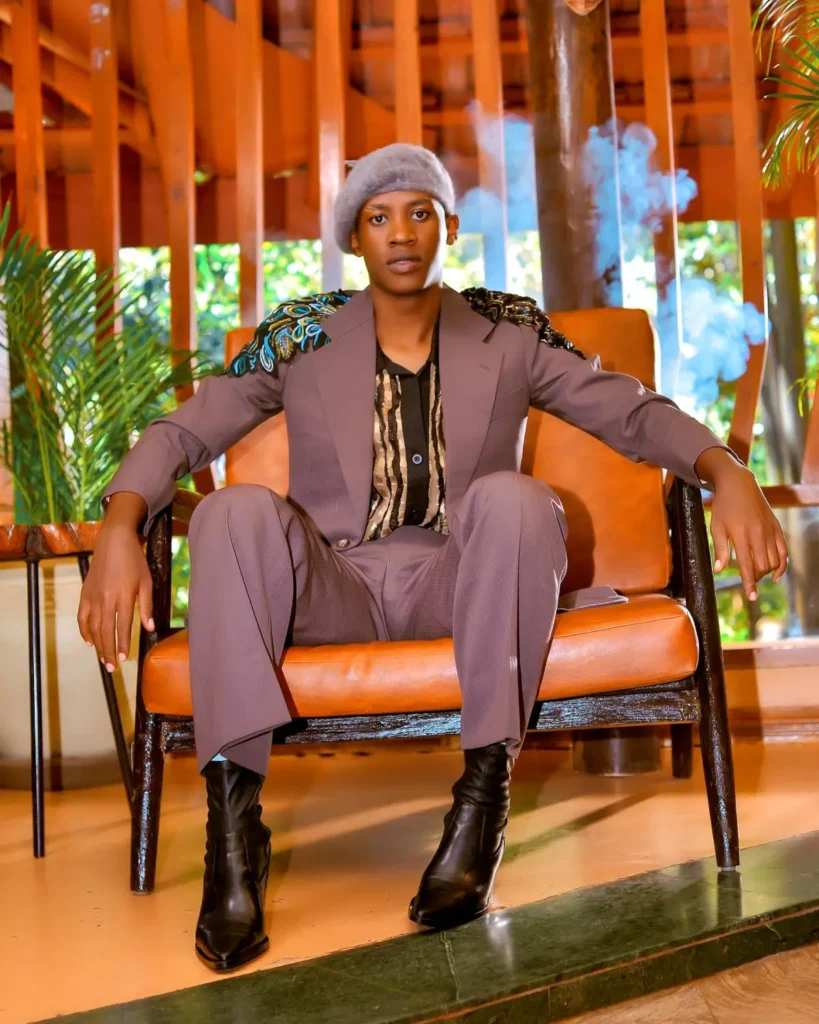Rising Ugandan singer and songwriter Laty Wizy is pulling back the curtain on what really happens behind the studio doors. In a heartfelt and eye-opening revelation, the fast-rising artist opened up about the harsh realities of being a creative in Uganda’s competitive music industry, from broken promises to stolen songs.
Speaking in a candid interview, Laty Wizy didn’t hold back as he described the financial and emotional toll of dealing with artists who fail to honor agreements and producers who exploit songwriters struggling to make ends meet.
“Some Artists Don’t Pay What They Promise”
For Laty Wizy, one of the most painful challenges has been watching his hard work go unrewarded.
“Some artists don’t pay well despite agreeing on the payment terms,” he revealed.
He explained that songwriters often pour their hearts into creating music that becomes the foundation of hit songs—yet they receive little to no compensation for their contributions.
According to him, many artists take advantage of songwriters’ financial struggles, knowing they’re desperate for exposure or survival money.
“Some of us spend hours writing lyrics that move people, but when it’s time for payment, we’re given peanuts,” he lamented.
Laty Wizy says the unfair treatment has left many talented songwriters feeling undervalued and voiceless in an industry that thrives on their creativity.
Producers Selling Songs Twice? “It’s Happening.”
The rising artist also dropped another bombshell — some producers allegedly resell songs to multiple artists without permission.
“Sometimes, it’s producers selling our songs without our knowledge,” Laty Wizy said.
“You later find that one song is being claimed by three different artists.”
This trend, he explained, has caused endless disputes over song ownership and confusion in the industry. It’s a practice that leaves both writers and artists feeling betrayed, especially when a song they created in trust suddenly surfaces under someone else’s name.
The issue exposes a deeper lack of regulation and accountability in Uganda’s creative industry — where contracts are often verbal, and intellectual property laws are rarely enforced.

A Dreamer Who Refuses to Give Up
Despite all the setbacks, Laty Wizy remains optimistic about his future. Instead of letting frustration define him, he’s using it as motivation to build his name as a performing artist.
“I sometimes choose not to be credited as a songwriter,” he admitted. “It helps me focus on growing my career as a performer.”
Laty Wizy is slowly carving his own lane, determined to move from behind the scenes to the center stage. His story reflects the silent struggle many behind-the-mic talents face — those who write, compose, and create hits that often make stars out of others.
Fighting for Respect in the Creative Space
The singer’s story isn’t just about unpaid dues; it’s a call for respect, fairness, and professional ethics in Uganda’s booming music scene.
His remarks come as several other artists and songwriters have begun speaking out against exploitation, sparking fresh debate about how creatives are treated.
Music analysts argue that without clear contracts and copyright enforcement, young talents like Laty Wizy will continue to face injustice, no matter how talented they are.
Still, the singer believes there’s hope. With the rise of digital platforms and more awareness around artist rights, he’s confident that a new generation of fair, transparent collaborations is on the way.
New Music, New Energy
While navigating these challenges, Laty Wizy is staying busy in the studio. He recently teamed up with Carol Nantongo on a heartfelt collaboration about friendship over money, a refreshing reminder that not every hit is driven by fame or cash.
The song, shared by Sanyuka TV, has sparked positive buzz among fans for its message of loyalty and authenticity — something Laty Wizy says the industry desperately needs more of.
🎵 “It’s about real friendship — not transactions,” he explained.
Standing Tall Despite the Odds
Laty Wizy’s transparency has struck a chord with many young creatives facing similar struggles. His courage to speak out shows a growing movement of artists demanding fair treatment and recognition.
From dealing with non-paying artists to producers double-selling songs, Laty Wizy’s story is a mirror of Uganda’s creative hustle — filled with talent, resilience, and a fight for respect.
As he continues to rise, one thing is clear: Laty Wizy isn’t backing down. He’s here to make music that speaks truth, uplifts others, and reminds the industry that creativity deserves compensation — not exploitation.
What do you think about Laty Wizy’s experience? Should Uganda’s music industry enforce stronger laws to protect creatives? Drop your thoughts below and stay tuned for more entertainment updates on E Page One!





